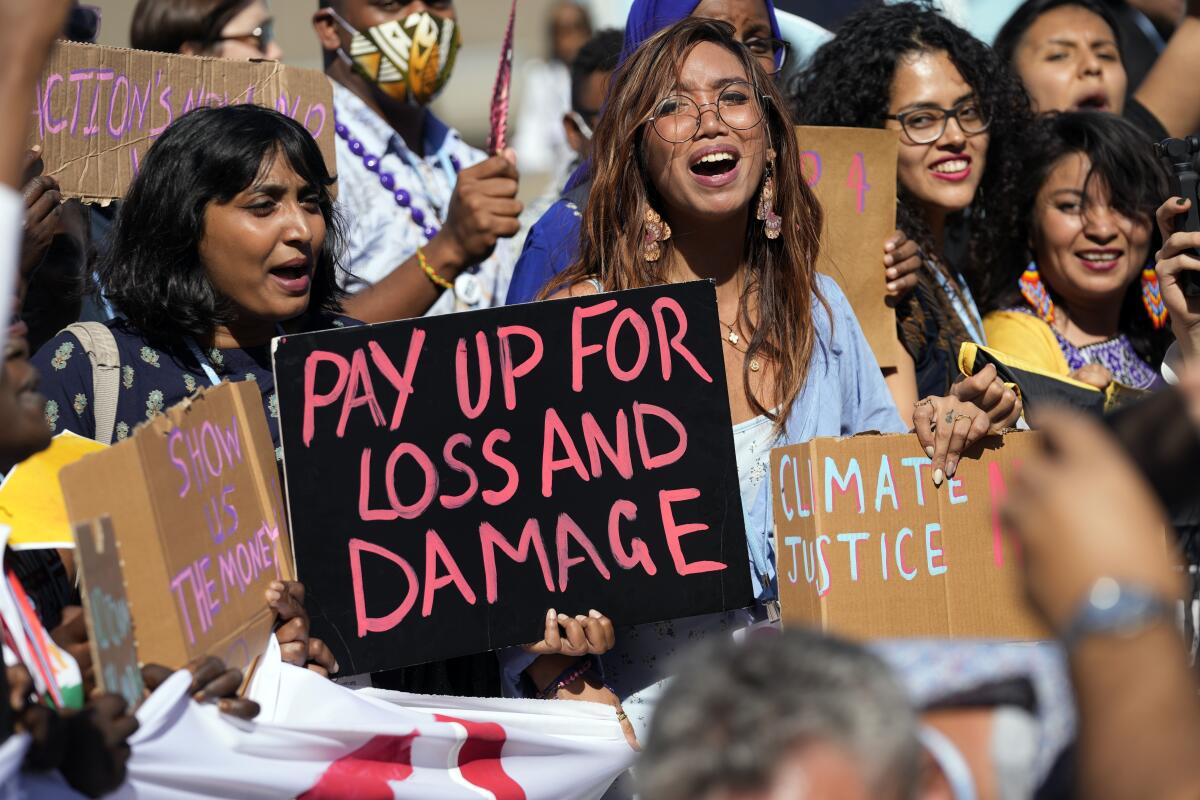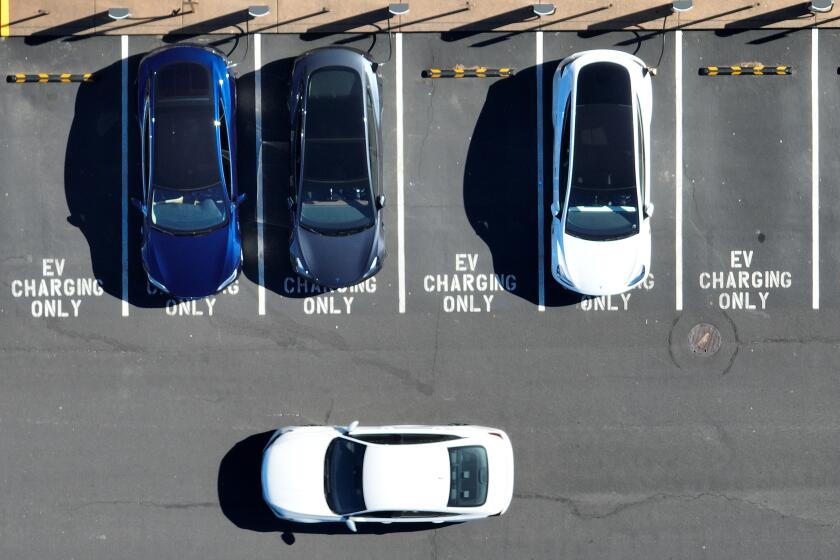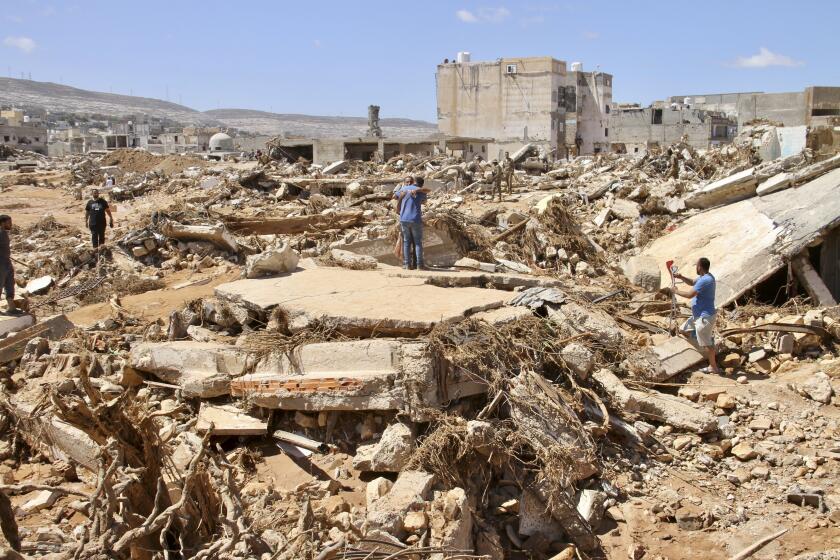In victory on first day, U.N. climate conference sets up fund for disaster-hit nations

DUBAI â The world took a big step Thursday toward compensating countries hit by deadly floods, heat and droughts brought on by climate change.
Nearly all the worldâs nations finalized the creation of a fund to help compensate countries struggling to cope with loss and damage from climate change, seen as a major first-day breakthrough at this yearâs United Nations climate conference. Some countries started putting in money right away â even if in small amounts compared with the overall anticipated need.
Sultan Jaber, the president of the COP28 climate conference in Dubai, hailed âthe first decision to be adopted on Day 1 of any COP,â and said his country, the United Arab Emirates, would chip in $100 million to the fund. Other countries stepped up with big-ticket commitments, including Germany, also with $100 million.
Developing nations had long sought to address the problem of inadequate funding for responding to climate disasters caused by climate change, which hit them especially hard and for which they have little responsibility, given that industrialized countries have spewed out most of the carbon emissions trapping heat in the atmosphere.
Initial steps toward creating the fund were a major accomplishment at last yearâs U.N. climate conference in Egypt, but the fund was never finalized. Even after Thursdayâs agreement, many details of the so-called loss-and-damage fund were left unresolved, such as how large it would be, who would administer it and other issues.
A recent U.N. report estimates that up to $387 billion will be needed annually if developing countries are to adapt to climate-driven changes.
California is expected to play a sizable role in the annual U.N. climate conference that will begin this week in Dubai.
Some activists and experts are skeptical that the fund will raise anything close to that amount. A Green Climate Fund first proposed at the 2009 climate talks in Copenhagen, which began raising money in 2014, hasnât come close to its goal of $100 billion annually.
Rachel Cleetus, policy director and lead economist for the climate and energy program at the Union of Concerned Scientists, said the creation of the fund on COP28âs first day was âa significant step forward in the fight for climate justice.â But she said the initial pledges were âa small, inadequate startâ and required follow-up from richer nations.
Still, experts said the show of unity demonstrated how the world could come together in short order to address devastation left behind from natural catastrophes such as Tropical Storm Daniel, which hammered Libya with massive flooding in September, and Cyclone Freddy, which battered several African nations early in the year.
âItâs great to see the loss-and-damage fund established,â said Mohamed Adow, director of Power Shift Africa, a think tank focusing on climate issues. âAt the start of COP27 in Egypt last year, many people said it wouldnât even be agreed [on], let alone created within 12 months.â
With no accountability in sight for damsâ collapses and deadly floods in Libya, sorrow for the dead turns to rage over corruption and political chaos.
But Adow also noted that there were âno hard deadlines, no targets, and countries are not obligated to pay into it, despite the whole point being for rich, high-polluting nations to support vulnerable communities who have suffered from climate impacts.â
Avinash Persaud, special climate envoy for Barbados, who was part of the talks to finalize the fund, praised the âhard-fought historic agreementâ and said it showed a ârecognition that climate loss and damage is not a distant risk but part of the lived reality of almost half of the worldâs population.â
Young climate activists demanded staying power for the fund. Ineza Grace, 27, an environmentalist from Rwanda, said the pledges âneed to be accompanied with clarity on how the finance will be maintained for generations,â especially now that the fund will be filled through voluntary contributions.
The fund will be hosted by the World Bank for the next four years, and the plan is to launch it by 2024. A representative from a developing country will be guaranteed a seat on its board.
A number of industrialized nations have insisted that all countries contribute to the fund and that any deal on it prioritize those most vulnerable to climate change even though any climate-affected community or country would be eligible.








